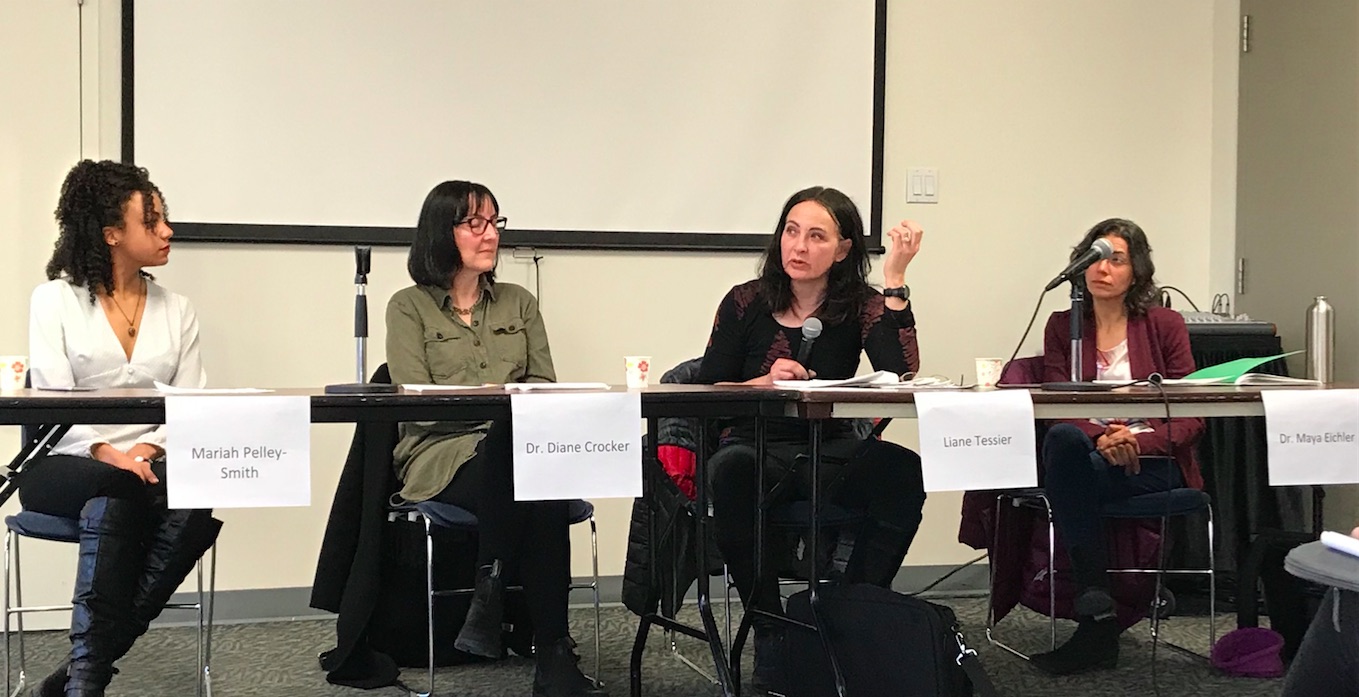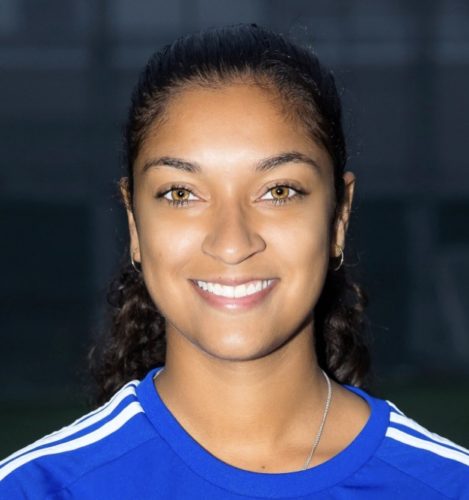Women
‘Not staying silent’: panellists keep #MeToo discussion going
Former firefighter who faced harassment among speakers at event at Dalhousie

caption
Panellists Mariah Pelley-Smith, Diane Crocker, Liane Tessier and Maya Eichler speak Wednesday at Dalhousie University.Morgan McAloney wants to push the #MeToo movement forward, so this week she got a group of women together to share ideas.
The Dalhousie University student, along with fellow student Savannah Greene, hosted a panel discussion on Wednesday in the Dalhousie Student Union Building.
“We understand a single movement can’t last forever, but the effects of the movement should have a permanent and positive impact,” said McAloney, who’s studying political science with a minor in law, justice and society.
#MeToo is a social media movement for people who have been directly affected by sexual assault and harassment, and encourages them to come forward so they know they are not alone. Related stories
There were four panellists: entrepreneur Mariah Pelley-Smith; Diane Crocker, associate dean of the department of sociology and criminology at Saint Mary’s University; Liane Tessier, a former firefighter who experienced gender discrimination; and Maya Eichler, assistant professor in political and Canadian studies and women’s studies at Mount Saint Vincent University.
“I’m not staying silent. I am going to keep talking,” said Tessier as she explained why the #MeToo movement is significant.
Tessier was forced out of her job with the Halifax Regional Fire and Emergency Service for speaking out against the gender discrimination that she experienced. She fought this battle for 12 years, beginning in 2005 when she first formally reported the harassment. Tessier and other female firefighters received an apology in December from the fire chief.
Tessier shared her story and explained that when she told her employer about the backlash from her male co-workers, she was told that perhaps she should just stop complaining.
“It’s always so surprising to hear these stories but not surprising,” said Crocker after hearing Tessier’s story. Crocker said she’s grateful for the #MeToo movement because she believes the different stories have had an impact on men.
“One of my male colleagues noticed other male co-workers speaking down to me, sometimes even calling me an ‘asshole’ about my decisions and they’d say things like, ‘Let me tell you how it works.’ I think the #MeToo movement allowed my colleague to notice, which was interesting and gratifying to me,” she said.
Eichler, who studies feminist international relations and gender and armed forces, said the answer to fixing gender discrimination and sexual harassment against women is to change the governing institution.
“To change institution there needs to be external pressure; institutions can’t do it by themselves,” Eichler said.
She called it “an ongoing struggle” and urged people to take advantage of the opportunity created by the #MeToo movement.
McAloney found inspiration for the panel discussion by connecting the present with the past.
She said the idea arose from a practicum course offered by Dalhousie Legal Aid. McAloney and Greene were assigned a case file called Women’s Community Space, known for the annual Not-So-Silent Vigil in remembrance of the 14 murdered women at L’École Polytechnique in Montreal in 1989.
“This file essentially aims to allow women to have a voice in a safe environment. So, when Savannah and I were assigned this file we found inspiration through the #MeToo movement because we saw this same idea on a much larger scale,” said McAloney.
About the author

Lesli Tathum
Lesli is from the Cayman Islands. She is in her fourth year of journalism at the University of King's College and is a member of the King's Women's...